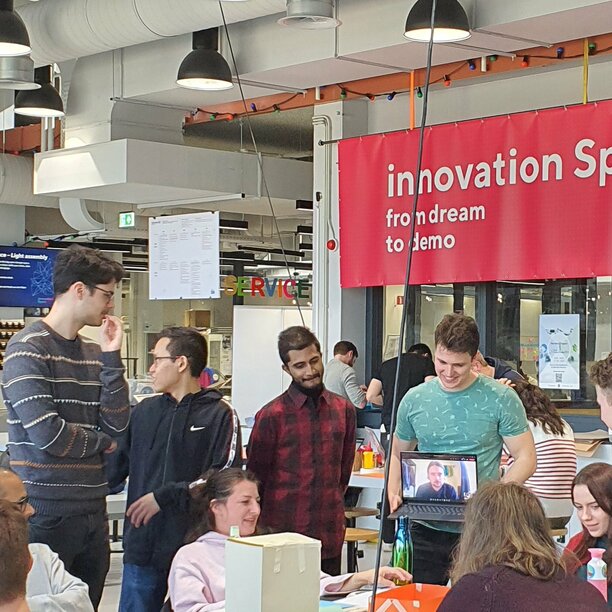Read this testimonial
Challenges 2024-2025
This year, the main challenge comes from DAF and its value network partners. The challenge will split in different projects covering various thematic areas. Below you can find a short explanation of these thematic areas.

Art as a Catalyst
Moving beyond conventional problem-solving, this theme addresses the world's challenges with a radical openness. Through art and design new perspectives are embraced, leading to surprising innovations.

Engineering Health and Vitality
Enhance the well-being and vitality of individuals and communities. In this theme, students work on challenges that generate innovative ideas to improve healthcare delivery, encourage healthy lifestyles, harness emerging technologies for medical progress, and develop inclusive solutions for better overall health.

Responsible Mobility
Create a sustainable future for transportation by addressing challenges that foster environmentally friendly and responsible solutions. Students tackle projects aimed at reducing emissions, enhancing infrastructure, improving accessibility, and revolutionizing transportation systems.

Sustainable Industry
Drive the transition towards a greener and more sustainable industrial landscape. Students work on challenges that promote eco-friendly manufacturing processes, resource-efficient production, waste reduction, and the integration of renewable energy solutions.

Smart Urban Spaces
Enhance cities by transforming them into vibrant, connected, and livable environments. Students can tackle challenges focusing on optimizing urban areas through urban planning, energy efficiency, safety, and citizen well-being, using cutting-edge technologies and data-driven solutions.

Regenerative Resources
Help shape a circular economy by addressing challenges that focus on regenerative resources. In this theme, students work on challenges that address sustainable sourcing, waste reduction, resource recovery, and the development of innovative materials and processes.
